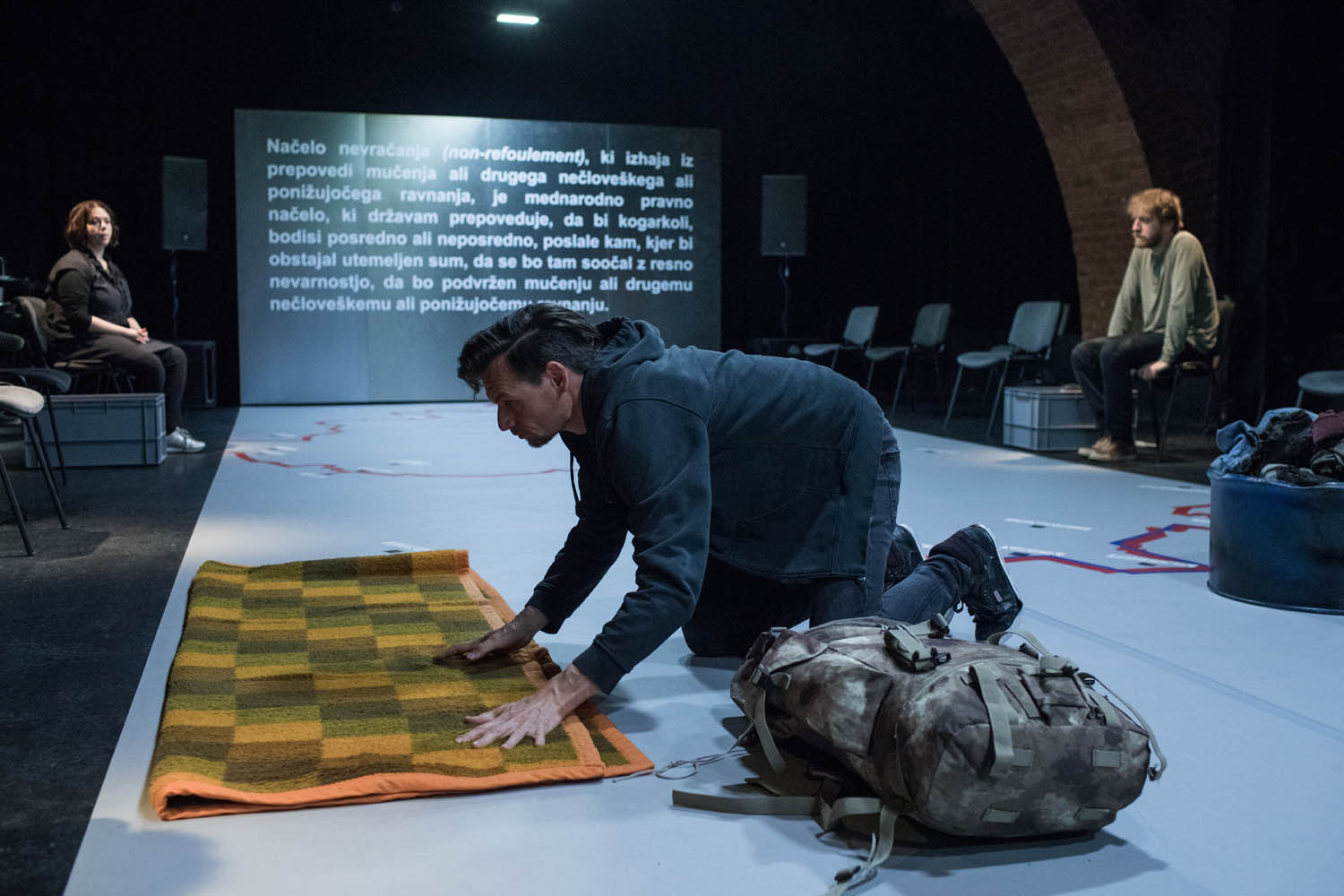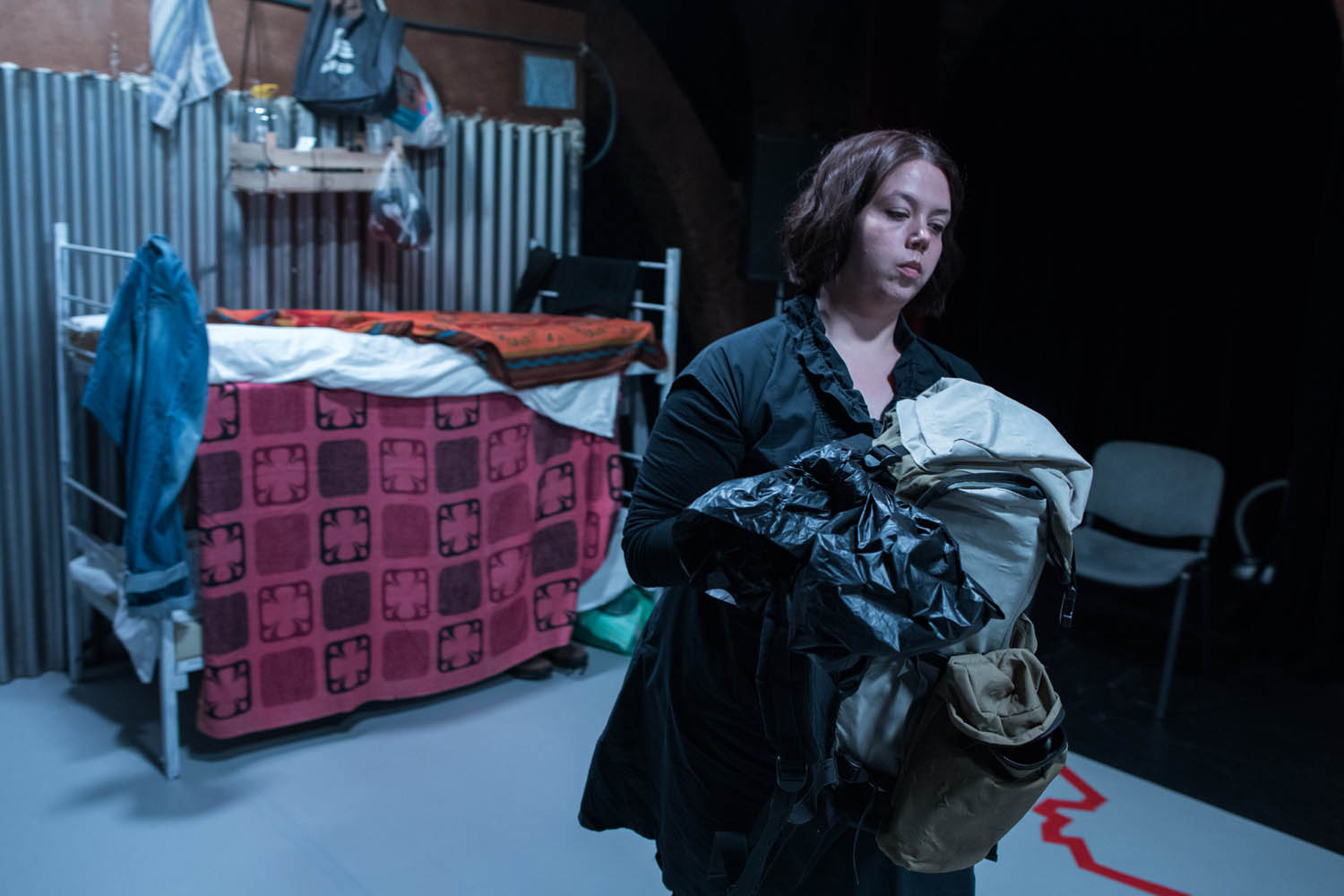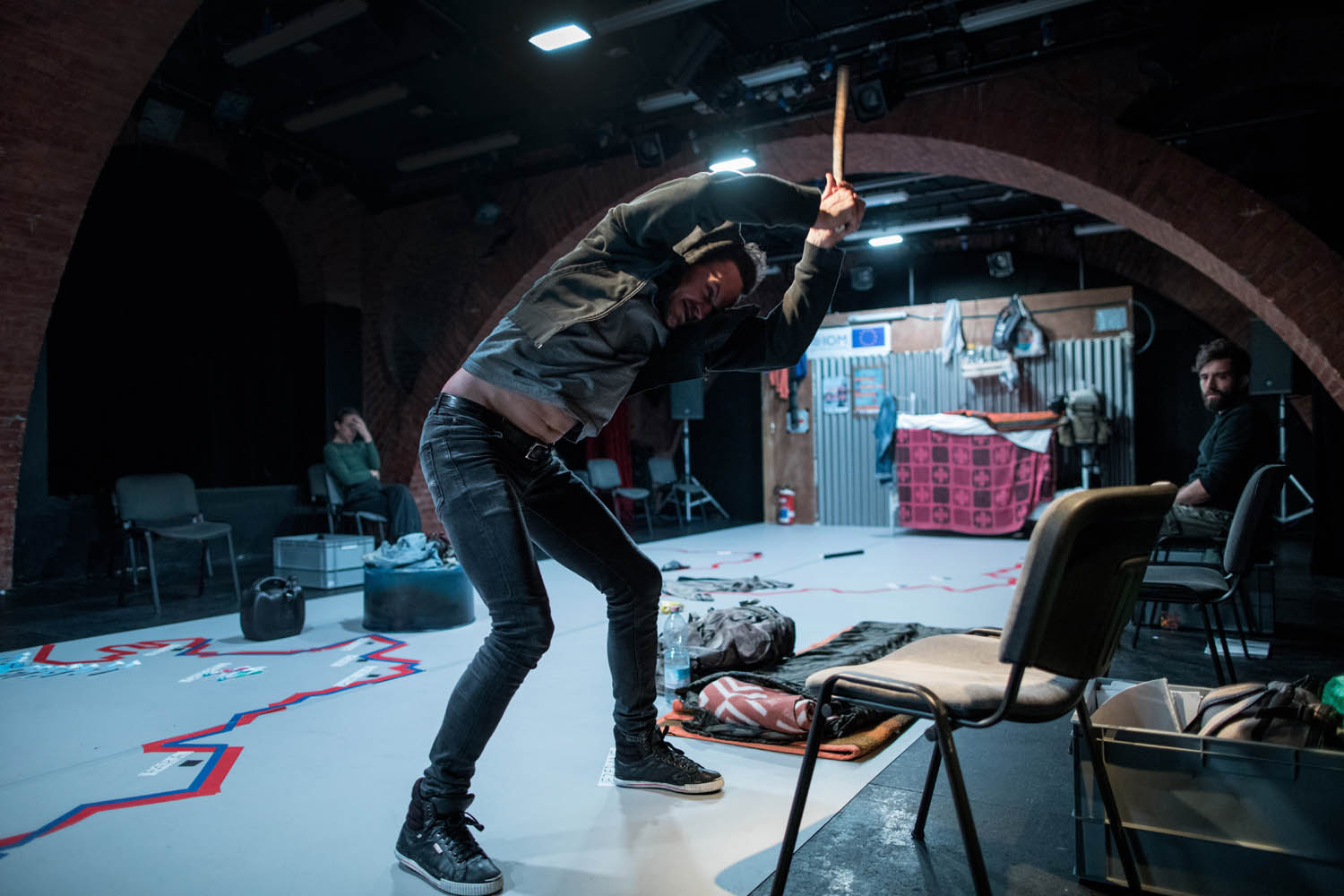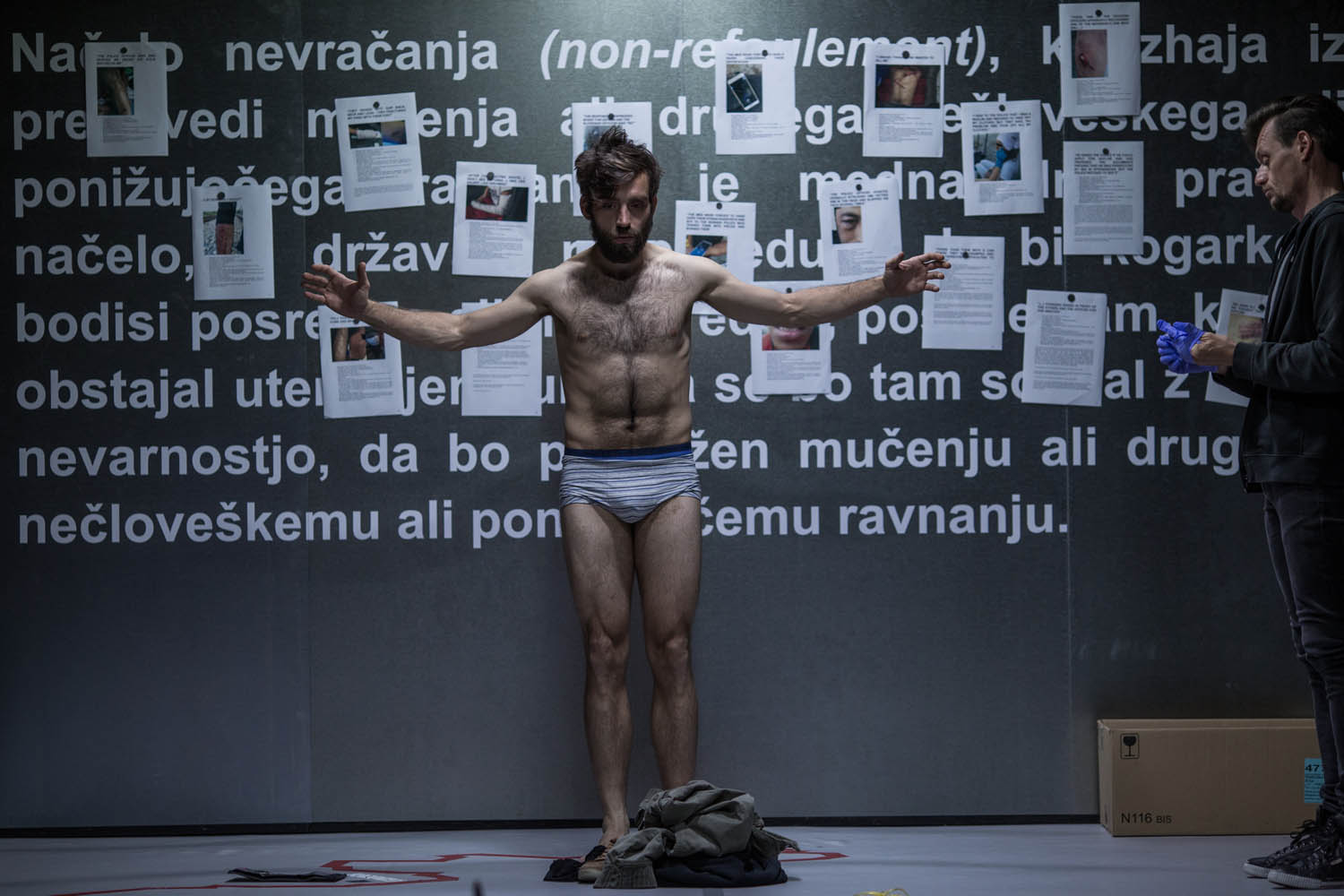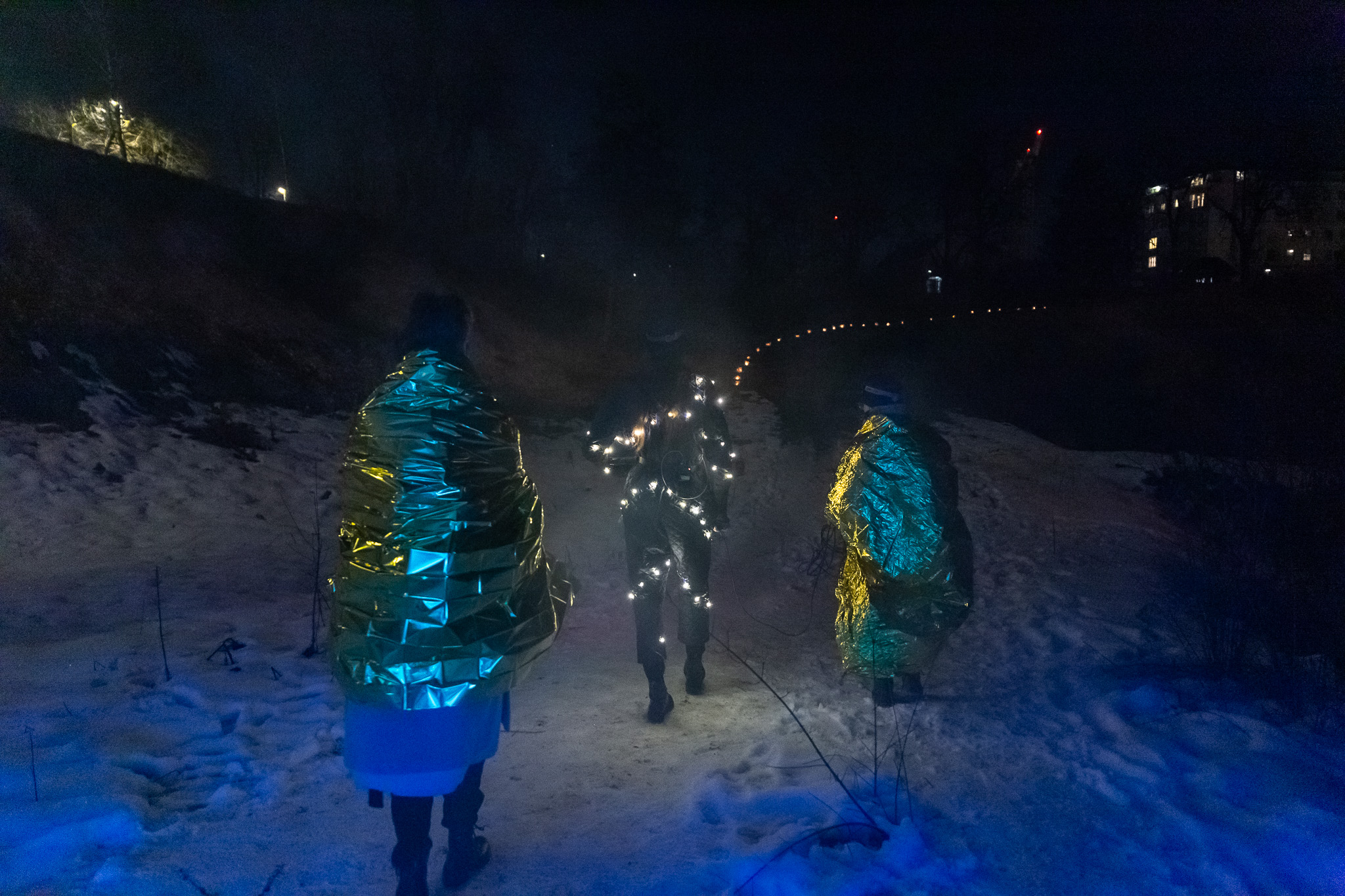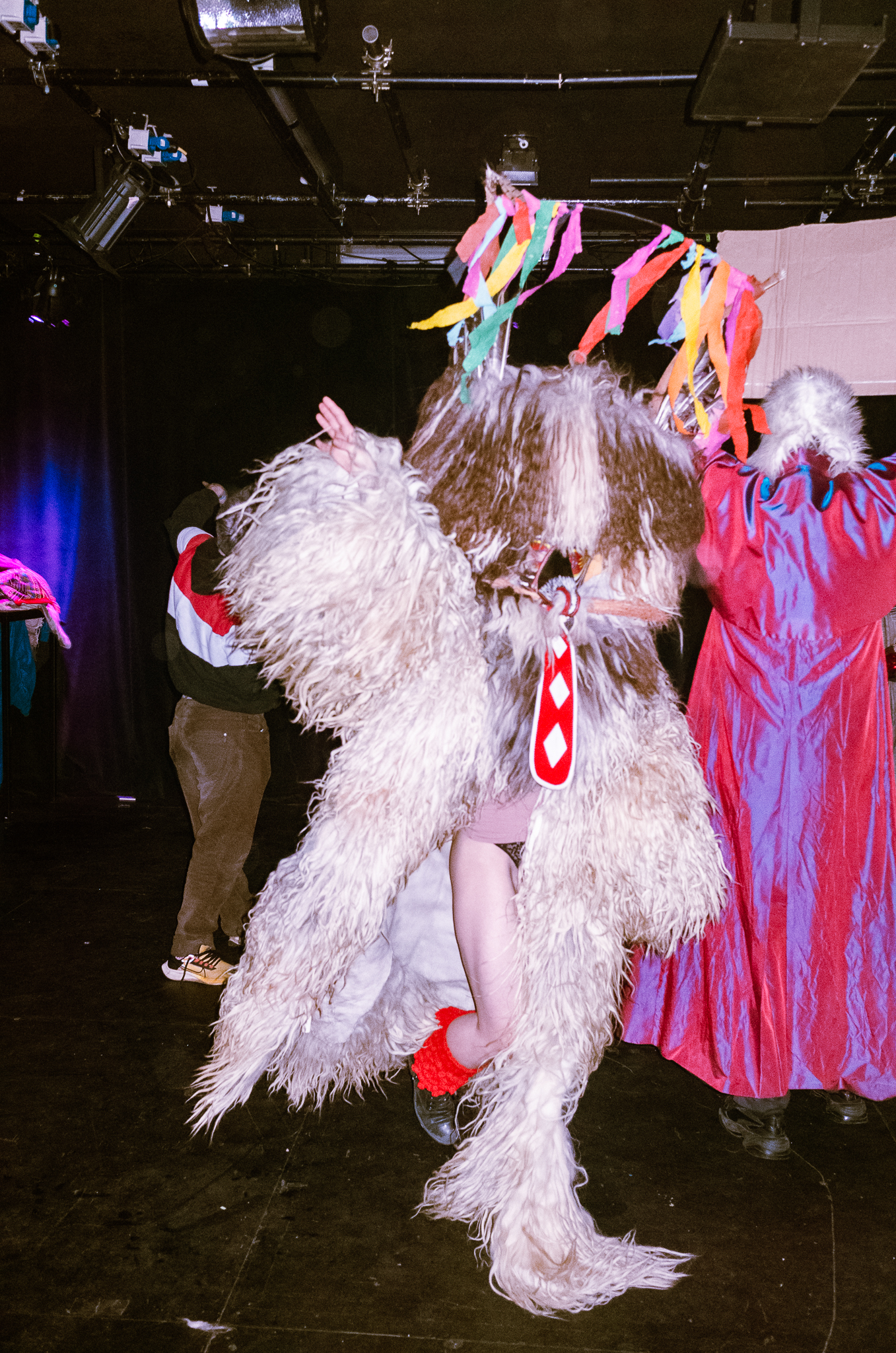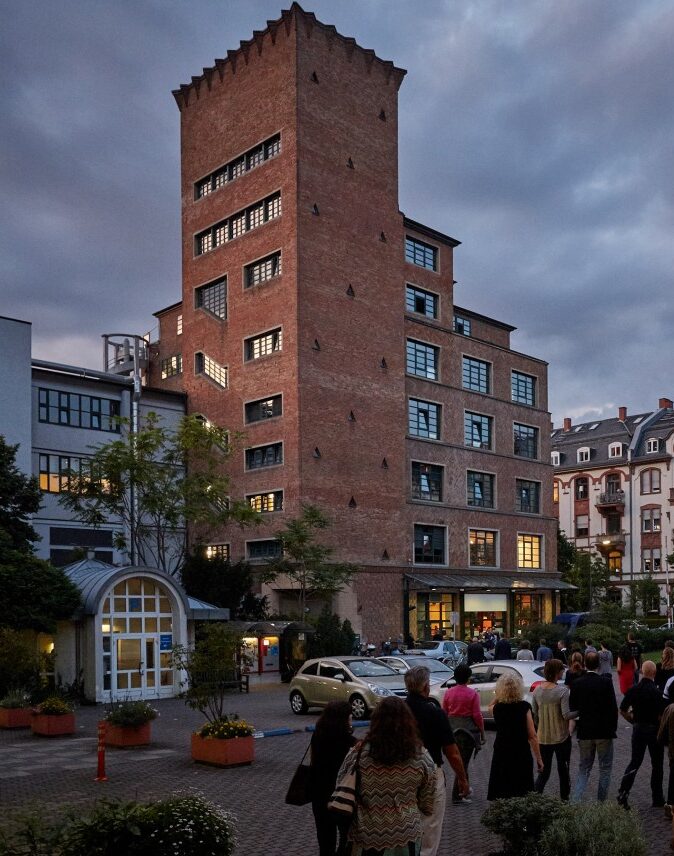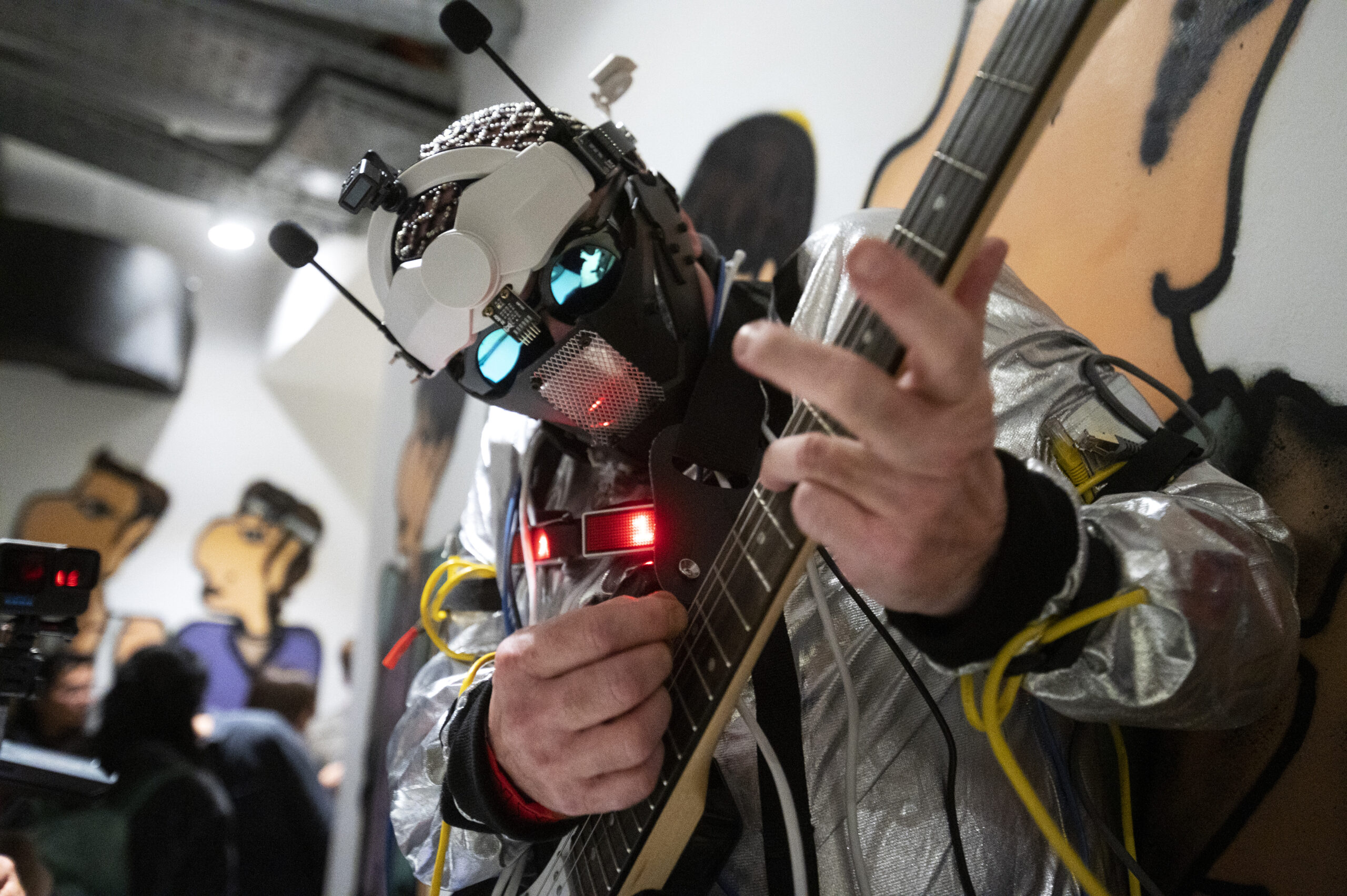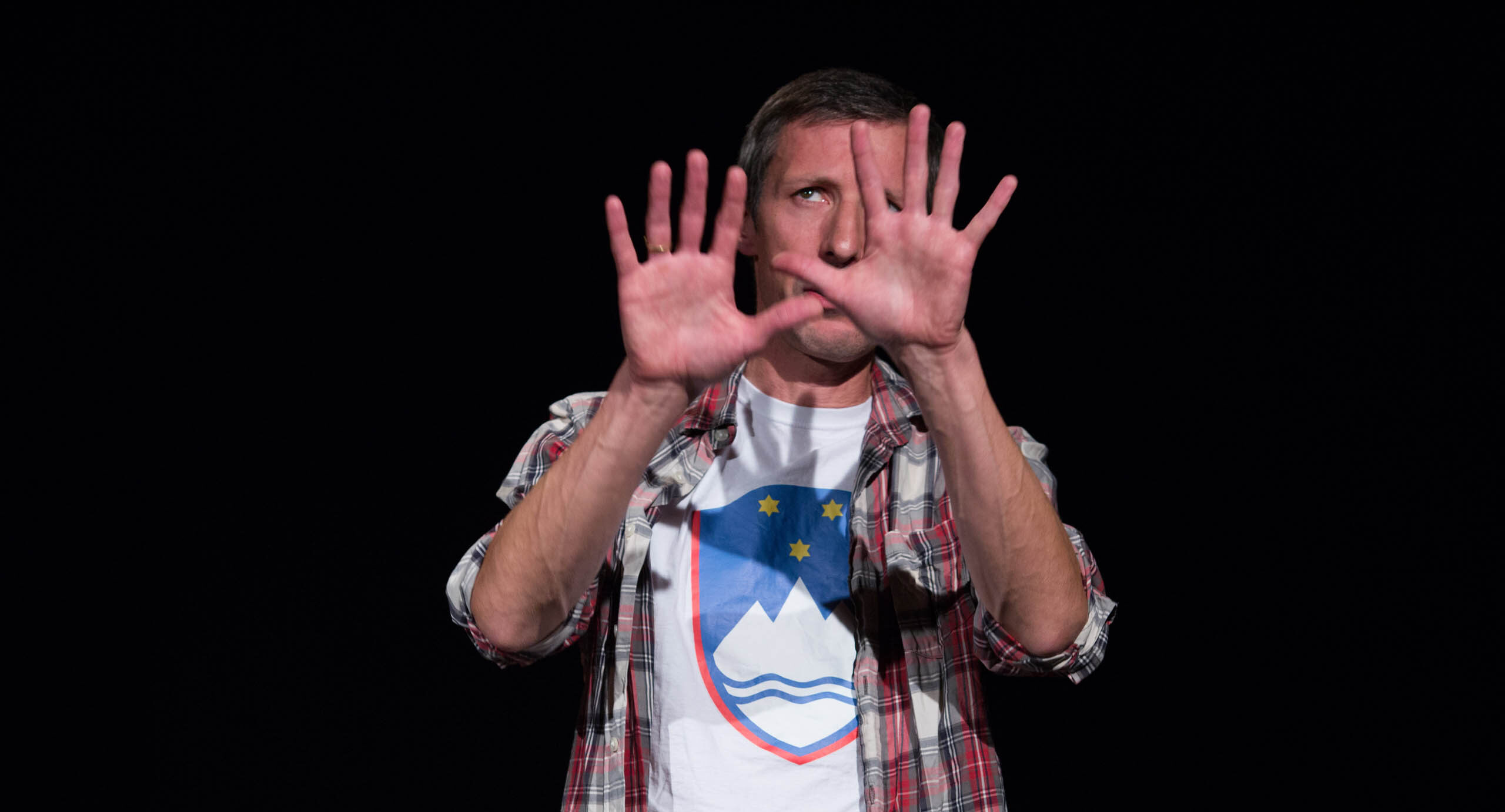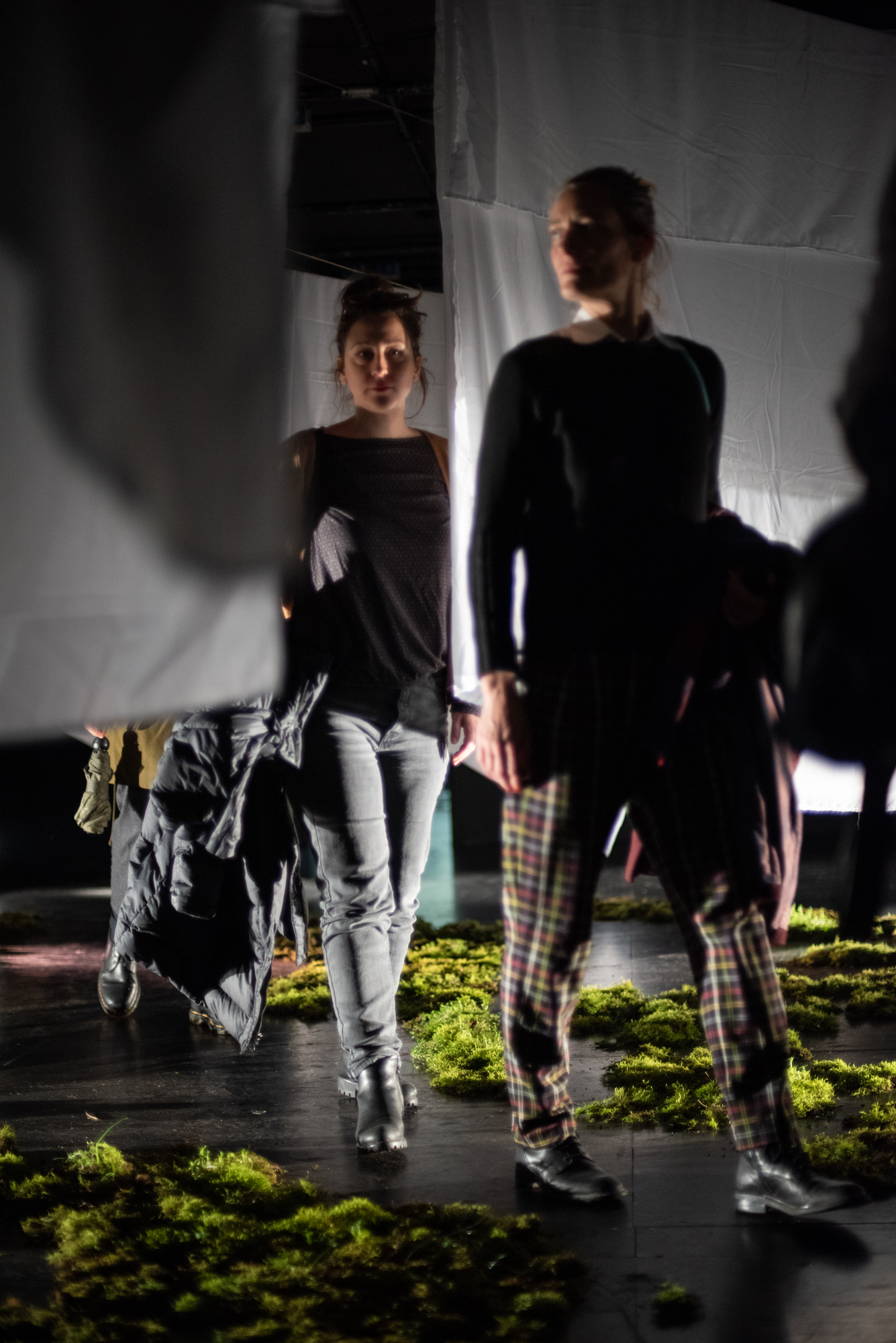The Game
People who have travelled halfway around the world to escape wars, persecution, violence and crushing poverty call the last few hundred kilometres of their journey, the paths that still separate them in Bosnia and Herzegovina from the European Union, “the game”. The game has no rules, laws do not apply, police powers are unlimited, violence is increasingly brutal, dangers are ever greater, opportunities are ever fewer and the paths are ever more remote…
Many people try many times, even twenty or thirty times: they have to succeed once. For many, the game ends fatally. So far, according to available data, around twenty people have lost their lives at our borders. The Game questions the role and responsibility of Slovenia and its border policy for the lives and fate of people on the run.
A documentary performance
Directed by Žiga Divjak
Co-production: Mladinsko theatre and Maska (within the New Post Office project)
Premiere: 10 June 2020
Awards
The Borštnik Festival Grand Prix for Best Production goes to The Game, directed by Žiga Divjak, co-produced by the Mladinsko Theatre and Maska Ljubljana
The Game expects from us either empathy or moral definition, but rather a strict adherence to the laws that define the standards of civilisation. A superb ensemble of actors, together with artistic and technical collaborators, create a powerful piece of theatre that defends humanity and the fundamental principles of European civilisation and culture. The production bears witness in a moving way to the great tragedy of migrants handed over to the merciless procedures of state authorities and European citizens. It is a play that speaks not only about Slovenia, but also about Europe and the world, and sends an alarming message that a red line has been crossed.
Decision passed unanimously.
Borštnik award for Best Director
Živa Divjak for direction of The Game, co-produced by Mladinsko Theatre and Maska Ljubljana
Žiga Divjak directs The Game uncompromisingly, linking all the elements of the production into an exciting and shocking whole. It is his tour de force, combining creative power and deep human engagement. His directorial process is bold and uncompromising. He takes risks in his work, just as the characters in his play risk their lives. At no point is he didactic, he does not moralise and he does not seek to please the audience. He creates an urgent performance that fights against the dominance of political, physical and aesthetic brutality.
Decision passed unanimously.
Matej Puc in The Game co-produced by Mladinsko Theatre and Maska Ljubljana and Seven Days co-produced by the Ljubljana City Theatre
With his roles in the productions of The Game and Seven Days, Matej Puc demonstrates bravura acting technique, exceptional strength in the emotional articulation of characters and the ability to vary the various stylistic and genre registers of the play. In The Game he sharply differentiated the neutral, narrative expression and poignantly shaped the migrant confessions. In Seven Days, his performance ranges from the convincing framing of the dramatic conflict in the scene with his wife to the technical bravura in the neurotically accelerated confession of a lonely man.
Decision passed unanimously.
Borštnik award for Scenography
Igor Vasiljev for The Game, co-produced by the Mladinsko Theatre and Maska Ljubljana
Igor Vasiljev is not only the set designer of Gejm, but also the author of the concept of space, which is one of the most characteristic elements of the director’s idea. The narrow stage for the actors, on which the national borders of the space from which the testimonies come are marked, and which divides the audience into two parts, is not only a metaphor for the border, the greatest trauma faced by refugees, but also allows the audience to confront themselves, a clear sign that this is not only a play about migrants, but also about us and our responsibility for their tragedy. By selectively choosing real objects that symbolise the fates of individuals, it creates a shocking installation – a “map” of the refugees’ dying.
Decision passed unanimously.
Borštnikova award for Dramaturgy
Katarina Morano for The Game, co-produced by the Mladinsko Theatre and Maska Ljubljana
Katarina Morano, the dramaturg of The Game, has created a formally pure and meaningful dramaturgical structure. Her basic principle is repetitiveness: the testimonies begin with documentary information about the fates of the refugees and continue with the actors’ personal experience of their cruel fates. The effect of the barely bearable duration and dramaturgy of repetition is not only to confront the audience rationally with the facts, but, in the spirit of post-dramatic theatrical politicisation, to put them in a situation of physical discomfort, which is only a small part of the physical and mental challenges experienced by the refugees.
Decision passed unanimously.
Borštnik award for Sound Design
Blaž Gracar for The Game co-produced by Mladinsko Theatre and Maska Ljubljana and Seven Days co-produced by the Ljubljana City Theatre
Whether it is gloomy, spiteful music, barking dogs or any other sound, Blaž Gracar creates measured soundscapes that subtly co-create dramatic situations as an organic part of the theatrical performance. The sound in the productions of The Game and Seven Days evokes otherness and sensitises the audience, holding them in its grip even after the performances are over.
Decision passed unanimously.
Borštnik award for Young Actress
Sara Dirnbek in The Game co-produced by Mladinsko Theatre and Maska Ljubljana
Sara Dirnbek handles her acting with great discipline and dedication to the idea of the production. Her authenticity and focus on the theme give the performance an extra dimension. The economy of her acting expression gives the confessions even greater power. To be above all a human being on stage is the actress’s priceless gift.
Decision passed unanimously.
The Game in the Media
Martin Lissiach: The Game, a Play of Life and Death
Primorski dnevnik / 16 December 2021
The engaging stage action directed by Žiga Divjak moves the viewer with its rawness and directness.
Brina Jenček: Game Over
Radio Študent / 22 June 2020
The intensity of the study is mirrored in the faces of the actors, who tell the personal stories of the participants in “The Game” in the first person. […] The actors are the element that is crucial for the stories they tell to really come alive before our eyes in all their cruelty and horror. […] A play is a play that presents the facts. By avoiding excessive sentimentality and moralising, it achieves the viewer’s emotion and the desire to act, the desire to change. The question is whether this is enough. Will anyone responsible for the crimes committed against refugees in Slovenia see the performance? Of those responsible for the deaths of refugees in the Kolpa River? Will there be any public debate on this issue? […] In any case, it is extremely important that the performance at least tries to change something. Only time will tell if it succeeds.
Gregor Butala: Crtique of the original project The Game: On the Cynical Playing with Human Lives
Dnevnik / 17 June 2020
The chronologically arranged stories are similar in their descriptions of the agonising limbo in which the protagonists are stuck, their memories of police brutality and their ‘overlooked’ asylum-seeking intentions, but they also have a personal touch that brings these fates closer to the audience. The successive confessions are gradually stacked on top of each other, as the various objects that illustrate each episode […] gradually accumulate on the playing surface […], which in the meantime become more and more poignant […] – and shocking.
At least part of this effect is surely due to the deliberate ‘sparseness’ of the means of staging; while the action on stage is, appropriately to the subject matter, essentially reduced to ‘a man speaking’ (which is often the only thing left for many migrants), the subject matter is also theatrically mirrored in the graduated repetition of ‘the same’, which perhaps exhausts the spectator in a similar way to the vicious circle in which the migrants are trapped. But this is not a performance that wants to be pleasant – in fact, it is through this ‘rigidity’ that the recognition of the utter indifference of the ‘system’ to legal and ethical principles, which is increasingly rampant even on our own doorstep, begins to emerge.
Melitea Forstnerič Hajnšek: The Game: An Eerie Connotation of the Notion of Play
Večer / 16 June 2020
With minimal theatrical means, mainly narrative, The Game achieves extraordinary effects. It is a superb example of documentary theatre, both in the choice and structure of the narrative material (excellent dramaturgy by Katarina Morano) and in the confessionally evocative acting contributions of almost all the protagonists. They expose the powerlessness of the country’s democratic institutions in an engaging, convincing way. […] We follow close to twenty individual, first-person testimonies of refugee men and women, very similar in their tragedy and at the same time in their implacable, inhuman persistence, which underlines their terrifying credibility. The objectified narration of the event is always followed by a personal confession, the depositing of personal props on the floor map, which functions as a game board, whether wet clothes, a mobile phone, or shoes. This part is expressively the strongest. […] The repetitive narrative process reinforces the impasse, the Sisyphean eeriness of the migrants’ fates. The stories themselves are so powerful that everything else is secondary.
Petra Tanko: The Game. Reviews.
Radio Slovenija / 11 June 2020
The word “game” or “play” takes on horrifying and tragic dimensions after watching yesterday’s performance. For it shows that human life is nothing more than a piece on a game board. But it does inspire hope, because it is precisely this figure that feeds on the endless resistance and life force that lasts until life ends. […] In The Game we see just over twenty stories of people trying, trying, trying. They don’t fail. The testimonies of torture and humiliation are horrific and very similar to each other. The director wonders whether these acts, which are contrary to the system, do not show precisely that they are guided and carried out in a deliberate and systematic way. The performance is staged with documentary asceticism in all elements of staging. Its message would not bear anything else.
Anja Radaljac: The Game. Reviewed.
Delo / 10 June 2020
The text of the play is very strong. Testimonies of police violence, both emotionally and cognitively powerful in their own right, as well as the performance, open up a space for individual voices that are otherwise unheard in society. At the same time, the exquisitely thought-out organisation and choice of texts are key to the performance. […] It is the uniform structure of the confessions and the non-uniform location of the action that raises the question of whether this kind of police violence is systematised, and perhaps there is a national consensus about the procedures; if police forces act in the same way in different parts of the country – on whose instructions do they act in the same way? It is precisely through the organisation of the texts that The Game’s performance implicitly provides a commentary on what is happening and places it in a broader social context. [… It is] an important performance which, at a time when politics is demanding ‘tighter control at the border’, sheds light on the status quo, which represents a complete breakdown of the basic principles of legal and ethical action.
Tajda Lipicer: The Game
Koridor – križišča umetnosti / 24 August 2020
The narratives that line up in this sequence are painful, piled up, violently splashed, told in one go. Although each narrative resonates in content as the same step that cost someone defeat, each successive one cuts with a different authorial-interpretive rhythm.
Kim Cuculić: Documentary Theatre on the Fate of Migrants
Novi list / 19 October 2021
Creators
Direction: Žiga Divjak
Cast: Primož Bezjak, Sara Dirnbek, Maruša Oblak, Matej Puc, Vito Weis
Reasearch assistant: Maja Ava Žiberna
Director’s assistant: Ana Lorger, Nika Prusnik Kardum
Dramaturgy: Katarina Morano
Scenography: Igor Vasiljev
Costumography: Tina Pavlović
Music, Sound, and Video Design: Blaž Gracar
Language consultant: Mateja Dermelj
Translation of sound recordings: Barbara Skubic
Lighting Designer, Technical Manager and Props Designer: Igor Remeta
Producer and manager of the show: Tina Dobnik
Thank you: Behnaz Aliesfahanipour, Hamza Aziz, Khalid Ali, Zaher Amini, Desmond, Reza, The Ahmmad family, Miha Turk, Anela Dedić, Nidžara Ahmetašević, Miha Blažič, Barbara Vodopivec, Uroš Škerl Kramberger, Kristina Božič, Aljaž Vrabec, Urša Regvar, Andraž Rožman, Dino Bauk, Faila Pašić Bišić, Milena Zajović Milka, François (Doctors Without Borders), Simon Campbell, Matej Povše, Dubravka Vranjac, Mark Pogačar, Tina Zorman, Ivan Šelih, Bruno Álvarez, Aco Todorović, Ivan Šikori, organizations Info Kolpa, Are You Syrious, No Name Kitchen, Border Violence Monitoring, The NGO Legal Information Centre, the Ombudsman of the Republic of Slovenia, and especially the residents of the Vič Asylum Home who shared their stories with us, and the people we met along the way in Velika Kladuša and Bihać.

